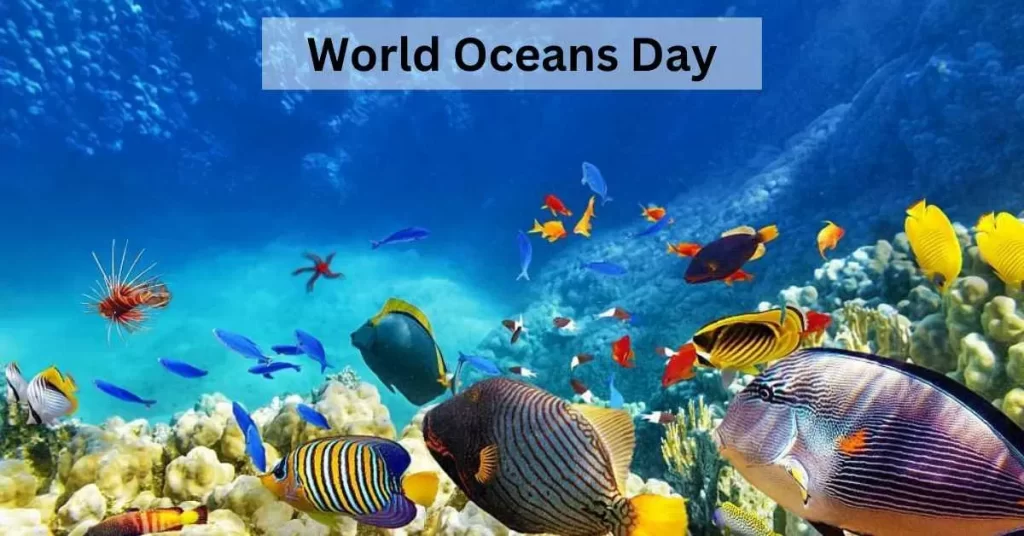Every year, on June 8th, people around the globe come together to celebrate World Ocean Day. This special day is dedicated to recognizing the crucial role that oceans play in our lives and the necessity of preserving and protecting them for future generations. World Ocean Day was officially recognized by the United Nations in 2008, but its roots go back to the Earth Summit in Rio de Janeiro in 1992. Since then, it has grown into a global event, mobilizing millions of individuals, organizations, and governments to take action for the health of our oceans.

The Importance of Oceans
Oceans cover over 70% of the Earth’s surface and are vital to the health of the planet and humanity. They produce at least 50% of the planet’s oxygen, house a vast diversity of life, regulate the climate, and provide a primary source of protein for more than a billion people. Furthermore, oceans are essential for global trade and the economy, supporting millions of jobs in fishing, tourism, and marine transportation.
Threats to Ocean Health
Despite their importance, oceans face numerous threats. Climate change is perhaps the most significant, leading to warming waters, rising sea levels, and ocean acidification. These changes disrupt marine ecosystems, affecting everything from coral reefs to polar ice caps. Overfishing is another critical issue, with many fish populations depleted to dangerous levels. Unsustainable fishing practices not only threaten species but also the livelihoods of communities that depend on them.
Pollution, particularly plastic pollution, is another severe problem. An estimated 8 million tons of plastic waste enter the oceans each year, harming marine life and ecosystems. Plastics break down into microplastics, which can be ingested by marine organisms, entering the food chain and potentially impacting human health. Other pollutants, such as oil spills, agricultural runoff, and toxic chemicals, also pose significant risks to ocean health.
Conservation Efforts and Solutions
World Ocean Day is a time to highlight and promote solutions to these challenges. Conservation efforts are multifaceted, ranging from policy changes and international agreements to grassroots movements and individual actions.
One of the most significant international efforts is the United Nations Sustainable Development Goal 14, which aims to “conserve and sustainably use the oceans, seas, and marine resources for sustainable development.” This goal includes targets for reducing marine pollution, protecting marine and coastal ecosystems, and regulating harvesting practices to prevent overfishing.
Marine protected areas (MPAs) are another vital tool in conservation. These designated areas restrict human activity to protect ecosystems and biodiversity. MPAs have been shown to help restore fish populations and enhance the resilience of marine environments. However, currently, only about 7.9% of the world’s oceans are under some form of protection, far short of the 30% target many scientists and conservationists advocate for.
Technological advancements also play a crucial role. Innovations in satellite monitoring, underwater drones, and data analytics help researchers better understand marine environments and the impacts of human activities. These tools enable more effective management and enforcement of conservation measures.
The Role of Education and Advocacy
Education and advocacy are central to the mission of World Ocean Day. By raising awareness about the importance of oceans and the threats they face, individuals and communities can be empowered to take action. Schools, aquariums, museums, and environmental organizations often hold special events, workshops, and campaigns to engage the public.
Advocacy can lead to tangible changes in behavior and policy. For example, the global movement to reduce single-use plastics has gained significant momentum, leading to bans on plastic bags, straws, and other items in many places. Such actions reduce the amount of plastic waste entering the oceans and highlight the importance of sustainable consumption.
Individuals can also contribute by making lifestyle changes. Reducing plastic use, supporting sustainable seafood choices, participating in beach cleanups, and advocating for policies that protect marine environments are all ways people can help.
Looking Forward
As we celebrate World Ocean Day, it is essential to recognize that the health of our oceans is intrinsically linked to the health of our planet and ourselves. The challenges are significant, but so are the opportunities for positive change. By working together—governments, organizations, and individuals—we can protect and restore our oceans, ensuring they continue to provide for future generations.
In conclusion, World Ocean Day serves as a reminder of the beauty, diversity, and importance of our oceans. It is a call to action, inspiring efforts to protect these vital ecosystems from the myriad threats they face. Through conservation, education, and advocacy, we can ensure that our oceans remain vibrant and resilient, sustaining life on Earth for centuries to come.